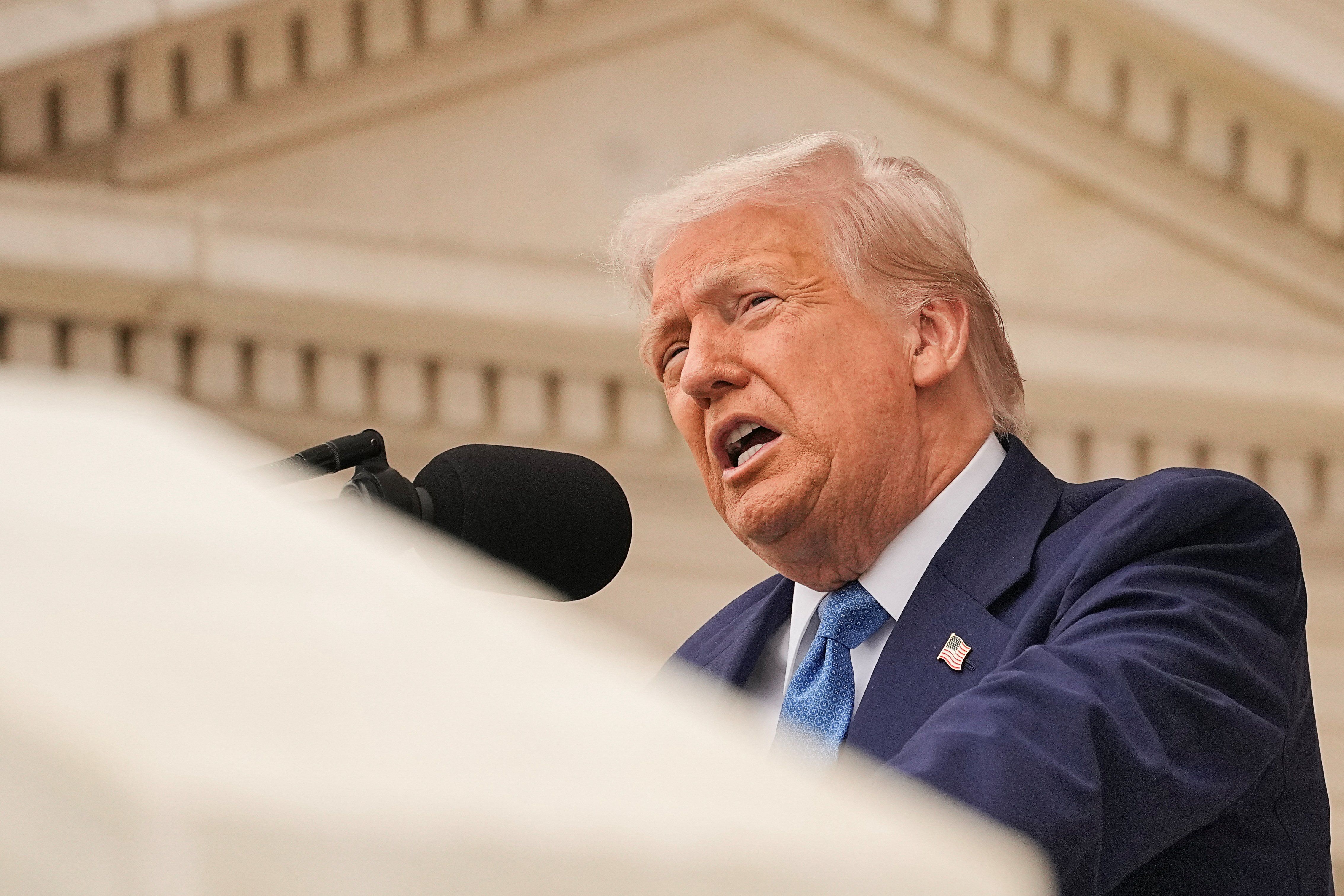In yet another blow to the increasingly complicated debates over President Donald Trump's One Big Beautiful Bill Act, Senate rules might strip out a provision that raises $116 billion from the bill, making its negative impact on the federal budget deficit even worse, Politico reported on Wednesday.
Specifically, the Senate parliamentarian — the nonpartisan official tapped to determine, among other things, when provisions of a budget bill are in compliance with Senate rules — make strike the GOP's so-called "revenge tax" that imposes higher taxes on foreign companies.
According to the report, Republicans fear that parliamentarian Elizabeth MacDonough "will see the provision as tantamount to overriding tax treaties the U.S. has with other countries. If that’s the case, she could decide the matter belongs under the jurisdiction of the Senate Foreign Relations Committee — which would be a problem for Republicans because their reconciliation plans never mentioned that panel." If that happens, the report says, it will "force lawmakers to redraft their plans or drop the provision altogether, leaving them scrambling to cover the resulting budget hole."
It is vitally important that all measures in the bill comply with reconciliation rules, often called the "Byrd Rule" in honor of the late Sen. Robert Byrd, because otherwise, it would have to be passed as a regular bill that would be subject to a Democratic filibuster and an insurmountable 60-vote requirement. If it is deemed wholly a budget bill, it can be passed by a simple majority with Republicans alone.
A lot of factors go into the parliamentarian's decision on Byrd Rule challenges, including whether a provision is primarily or just "incidentally" about the budget, whether it alters a pre-existing program or creates a new one, or whether similar changes have been allowed in reconciliation before.
Theoretically, Republicans could vote to override the parliamentarian by a simple majority, but this is unlikely as it would effectively be a vote to undermine the powers of the filibuster itself, which GOP leadership fears would give Democrats significantly more power to pass their agenda in the future.
All of this comes as several other political challenges rock the Trump tax bill, which seeks to extend the president's 2017 tax cuts while cutting around $1 trillion from Medicaid, food stamps, and green energy credits.
Multiple Republican senators, as well as key Trump ally Elon Musk, have come out against the bill in its current form for raising the deficit, while others object to the Medicaid cuts, and even some House members who voted for the bill, like Reps. Marjorie Taylor Greene (R-GA) and Scott Perry (R-PA), are now demanding that the Senate strip out various provisions and make significant alterations.
